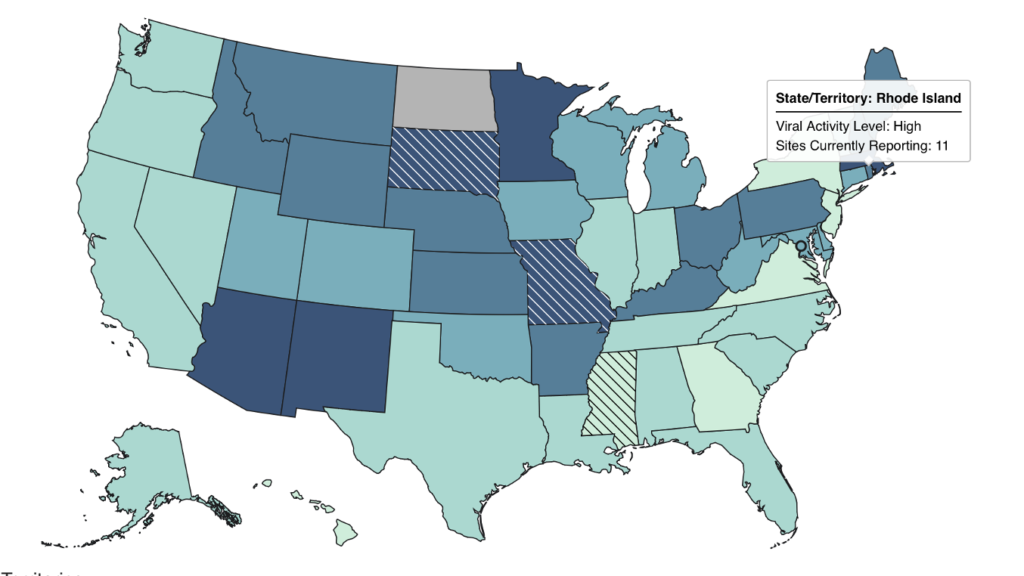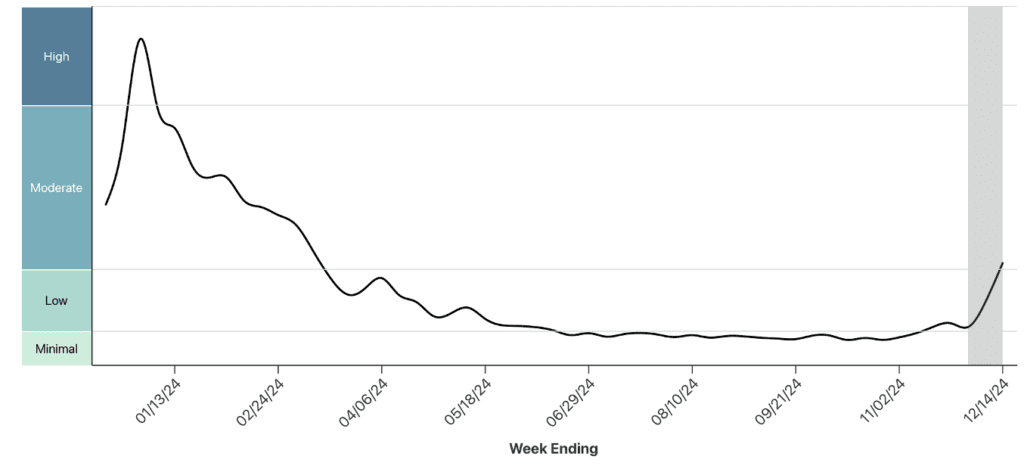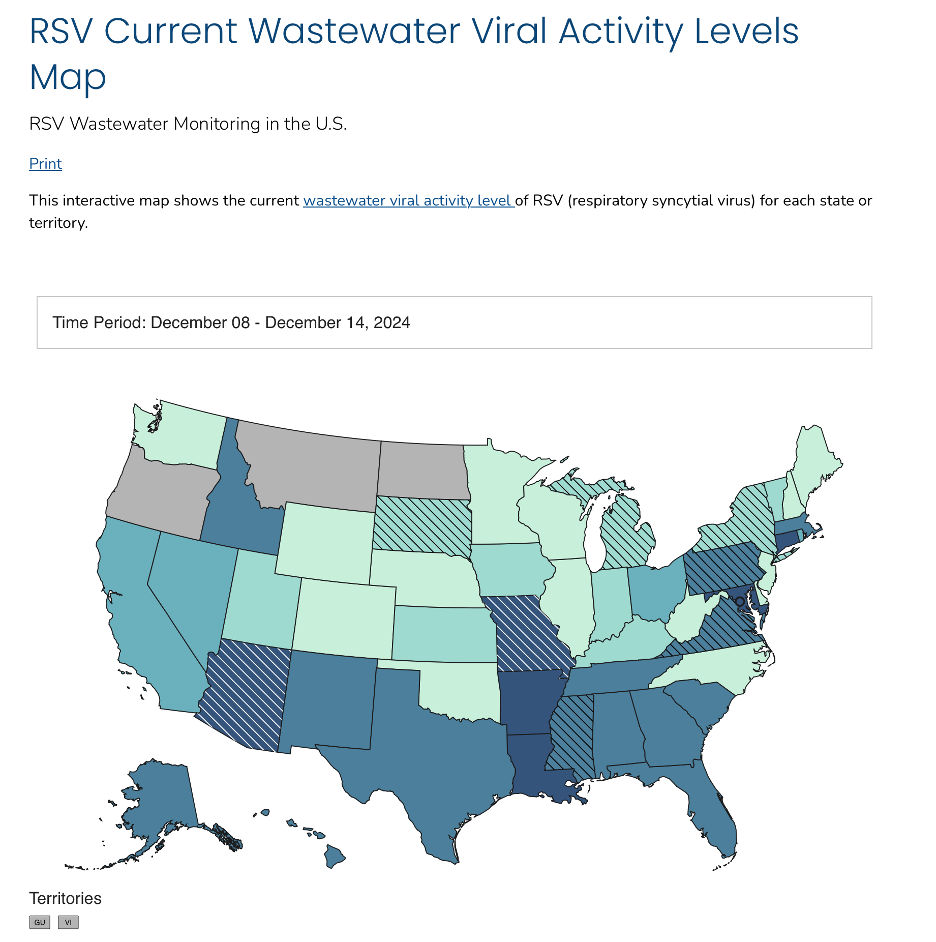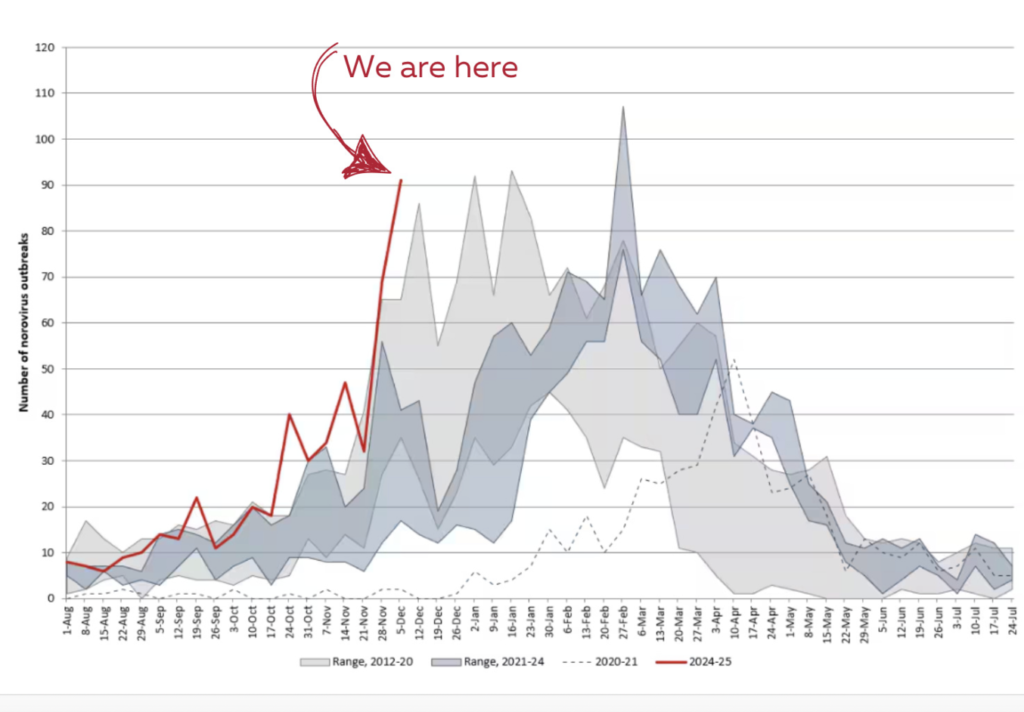Search Posts
Recent Posts
- In the news: Quick recap of the week’s news… 6.14.25 June 14, 2025
- Drowning in corruption in Bonnet Shores: Hundreds sign petition. No action by lawmakers. June 14, 2025
- Rhode Island Weather for June 14, 2025 – Jack Donnelly June 14, 2025
- Burn with Kearns: Train smarter, not harder. Multi-use fitness tools – Kevin Kearns June 14, 2025
- Out & About in RI: Miriam Hospital Gala raises over $890,000 June 14, 2025
Categories
Subscribe!
Thanks for subscribing! Please check your email for further instructions.

Staying healthy through the holidays, despite a ‘quad-demic’ – Nick Landekic
Staying Healthy Through the Holidays Despite A ‘Quad-demic’ – Winter means another wave of respiratory infections is here
By Nick Landekic, contributing writer
Winter is here, and along with it the expected increase in respiratory infections – COVID, flu, and RSV. This winter we are experiencing a ‘quad-demic’ with norovirus also added to the mix.
It’s possible to become infected any time of the year, though there is generally a pattern of surges and increased risk in the winter and summer driven by the cycles of variant evolution and larger numbers of people gathering indoors to socialize. That means taking some precautions if you want to avoid getting sick while we enjoy the holidays with friends and family.
COVID
While we all would love to completely forget about COVID the unfortunate reality is that it’s still very much with us and will be for a very long time. The SARS-CoV-2 virus continues to evolve and mutate very quickly, with multiple variants now circulating at the same time. The latest predominant variant is called XEC and now accounts for almost half of all infections, a dozen other circulating variants. The selection pressures of viral evolution mean that new variants are almost always becoming more contagious, and more evasive of our immune defenses, and thus more of a concern.
As has often been the case since COVID appeared almost five years ago, levels in Rhode Island are High, and rising fast around the country (as measured by the Center For Disease Controls wastewater monitoring).

Flu (influenza)
Flu activity is also increasing exponentially, as expected at this time of year, likely to peak in the next few weeks.

There are two notes of caution regarding flu this year. First, the available vaccine might not be a great match for the circulating strains, with initial data suggesting only about 34% effectiveness. You may well still get infected even if vaccinated, but the vaccine can bring a case of the flu down from severe to mild. It’s not too late to get vaccinated.
Second, H5N1 Avian Influenza – “bird flu” – is rising and a potentially serious threat. Bird flu has made the jump to mammals and people, especially cows. 638 cow herds in 16 states are confirmed infected with bird flu. Bird flu virus is found in raw milk and can make people sick if you drink it. Pasteurization kills the virus and makes pasteurized milk safe. Bird flu can cause severe illness in people, making it doubly useful to be vaccinated against the flu to protect from possible co-infection.
RSV
RSV, Respiratory Syncytial Virus, is particularly a risk for children and older people. An RSV vaccine is also available for adults 75 and older, adults 60 to 74 with certain chronic medical conditions, and expectant parents late in pregnancy. RSV levels are also climbing, ranging from Moderate to Very High across Rhode Island, Massachusetts, and Connecticut.

Norovirus
Unlike the previous three respiratory (air borne) pathogens, norovirus is a gastrointestinal virus primarily spread through contaminated food and surfaces, that causes nausea, vomiting, and diarrhea – perfect ways to spoil the holidays. Infection levels are abnormally high and rising fast.

Some things to keep in mind to stay healthy…
- Anyone can get infected by any of these viruses but older people are generally at higher risk than the younger. If you are over 50 and especially 60, you may want to take precautions.
- People with certain medical conditions such as diabetes, high blood pressure, asthma, or obesity are at greater risk.
- Ventilation helps. Opening doors and windows when it’s safe to do so reduces the number of virus particles in the air. Being outdoors is generally safer than indoors. However, it is possible to become infected outdoors, especially when in large groups of people such as music concerts, sports events, and crowded parade viewing areas. An outbreak in 2022 in Provincetown Cape Cod resulted in over 1,000 infections and was believed to come largely though outdoor transmission.
- COVID has not become ‘mild.’ If anything, some studies have shown it has become worse. It most definitely is not like a cold or the flu. It’s much more serious.
- Repeat infections are best avoided. Studies have shown repeat COVID infections have 2 to 3 times the risk of a worse outcome, organ, tissue, and system damage, than the previous infection. COVID really isn’t something you want to get over and over again. Your body doesn’t get ‘used to it,’ it just hurts you more each time.
- Masks work, and work very well. Masks can help protect you against any respiratory virus, COVID, flu, or RSV. A great many studies have repeatedly shown that a N95 (or equivalent KN95, KF94, or FFP2 mask) worn properly can significantly reduce your risk of becoming infected, and even reduce the severity of illness if you do become infected (by reducing the number of virions inhaled). Consider wearing a mask in crowded indoor spaces.
- Vaccines are an important tool. Reformulated COVID vaccines were approved in August targeting the newer variants circulating. There are two different types of COVID vaccines available, mRNA forms from Pfizer and Moderna, and one from Novavax that works more similarly to traditional vaccines. Talk with your doctor about which kind might be best for you.
For anyone wanting more information there are some great resources available. The People’s CDC is an independent, non-partisan group of public health practitioners, scientists, healthcare workers, and others working to reduce the armful impacts of COVID. Dr. Katelyn Jetelina and other scientists contribute to Your Local Epidemiologist with updates and news on all these infectious diseases. With the likelihood of reduced federal public health support and attention to infectious diseases in the future, it may be increasingly incumbent on us to stay aware of what is happening so we can take appropriate measures to protect ourselves and our families.
The year-end holidays are a special time to spend with friends and family. They’re even better if you stay healthy.
___
Nick Landekic of Bristol is a retired C.E.O. and biotechnology entrepreneur who has spent more than 35 years working in the pharmaceutical industry.

UPDATE: recent CDC data show that Rhode Island is having the 7th highest rate of hospitalizations for COVID, RSV, and flu:
https://substackcdn.com/image/fetch/f_auto,q_auto:good,fl_progressive:steep/https%3A%2F%2Fsubstack-post-media.s3.amazonaws.com%2Fpublic%2Fimages%2F581f20bf-e2d5-4958-82e3-88ac28223d6a_794x1996.png?utm_source=substack&utm_medium=email
By comparison with other New England states, Maine has the 2nd *lowest* rate, and Vermont the 5th lowest.
There’s a LOT of virus circulating in Rhode Island. Please be careful!
Thanks, Nick – we reposted your story – guess we are a germ-y state. So many old-olds, it’s a great concern… Merry Christmas to you!